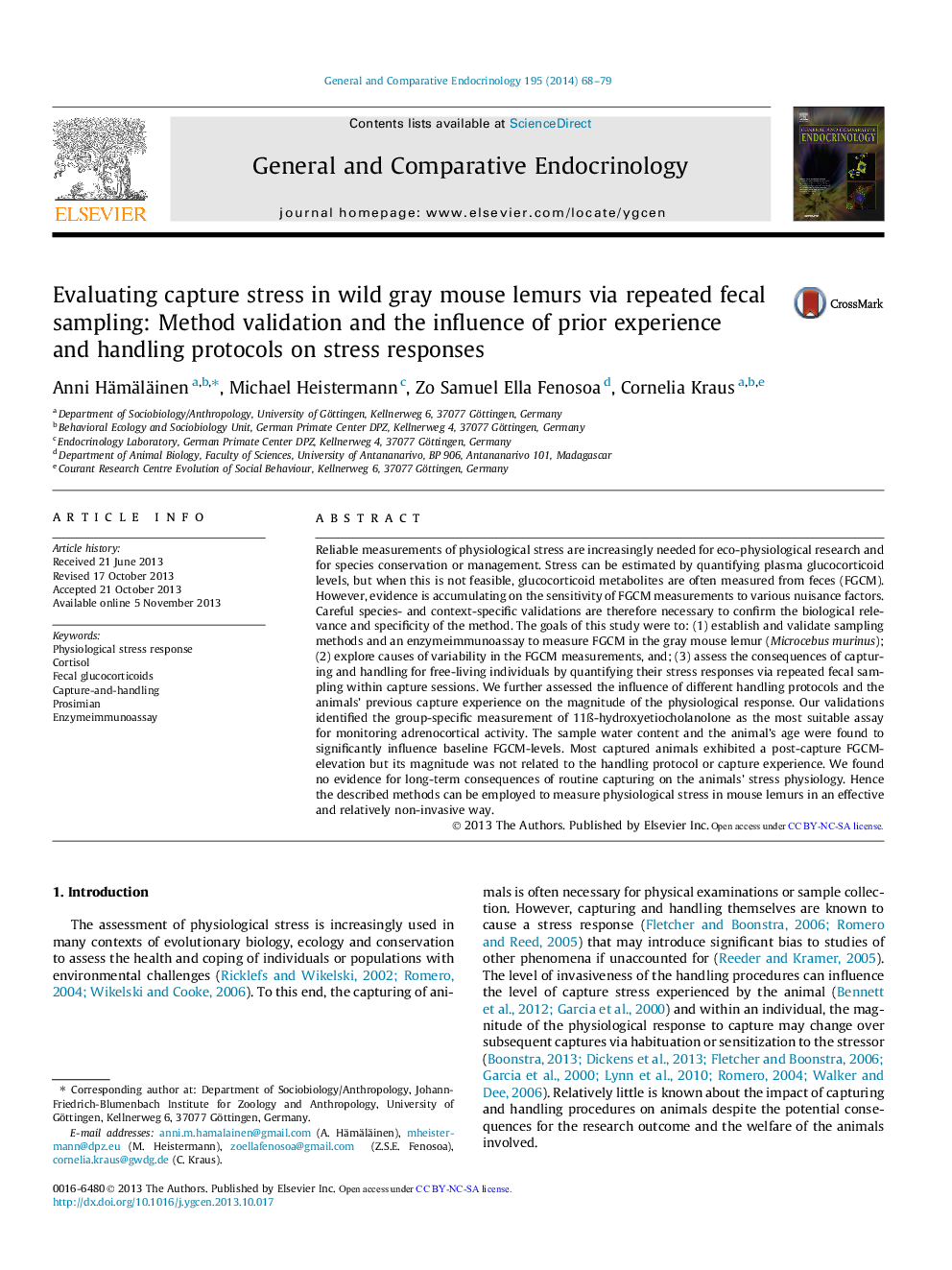| Article ID | Journal | Published Year | Pages | File Type |
|---|---|---|---|---|
| 5901179 | General and Comparative Endocrinology | 2014 | 12 Pages |
â¢We validated a method for measuring glucocorticoids via feces in gray mouse lemurs.â¢Biological validations reveal a two day delay to measuring peak stress response.â¢Magnitude of stress response is unrelated to handling regime and prior experience.â¢Routine capturing does not have long-term consequences for stress levels.
Reliable measurements of physiological stress are increasingly needed for eco-physiological research and for species conservation or management. Stress can be estimated by quantifying plasma glucocorticoid levels, but when this is not feasible, glucocorticoid metabolites are often measured from feces (FGCM). However, evidence is accumulating on the sensitivity of FGCM measurements to various nuisance factors. Careful species- and context-specific validations are therefore necessary to confirm the biological relevance and specificity of the method. The goals of this study were to: (1) establish and validate sampling methods and an enzymeimmunoassay to measure FGCM in the gray mouse lemur (Microcebus murinus); (2) explore causes of variability in the FGCM measurements, and; (3) assess the consequences of capturing and handling for free-living individuals by quantifying their stress responses via repeated fecal sampling within capture sessions. We further assessed the influence of different handling protocols and the animals' previous capture experience on the magnitude of the physiological response. Our validations identified the group-specific measurement of 11Ã-hydroxyetiocholanolone as the most suitable assay for monitoring adrenocortical activity. The sample water content and the animal's age were found to significantly influence baseline FGCM-levels. Most captured animals exhibited a post-capture FGCM-elevation but its magnitude was not related to the handling protocol or capture experience. We found no evidence for long-term consequences of routine capturing on the animals' stress physiology. Hence the described methods can be employed to measure physiological stress in mouse lemurs in an effective and relatively non-invasive way.
